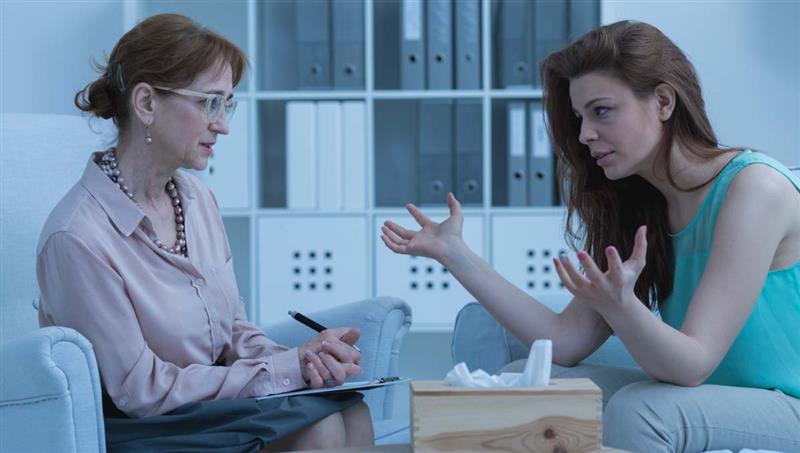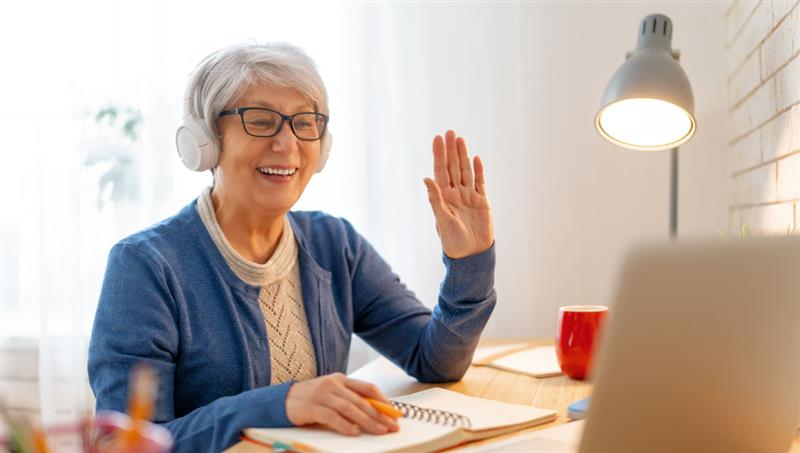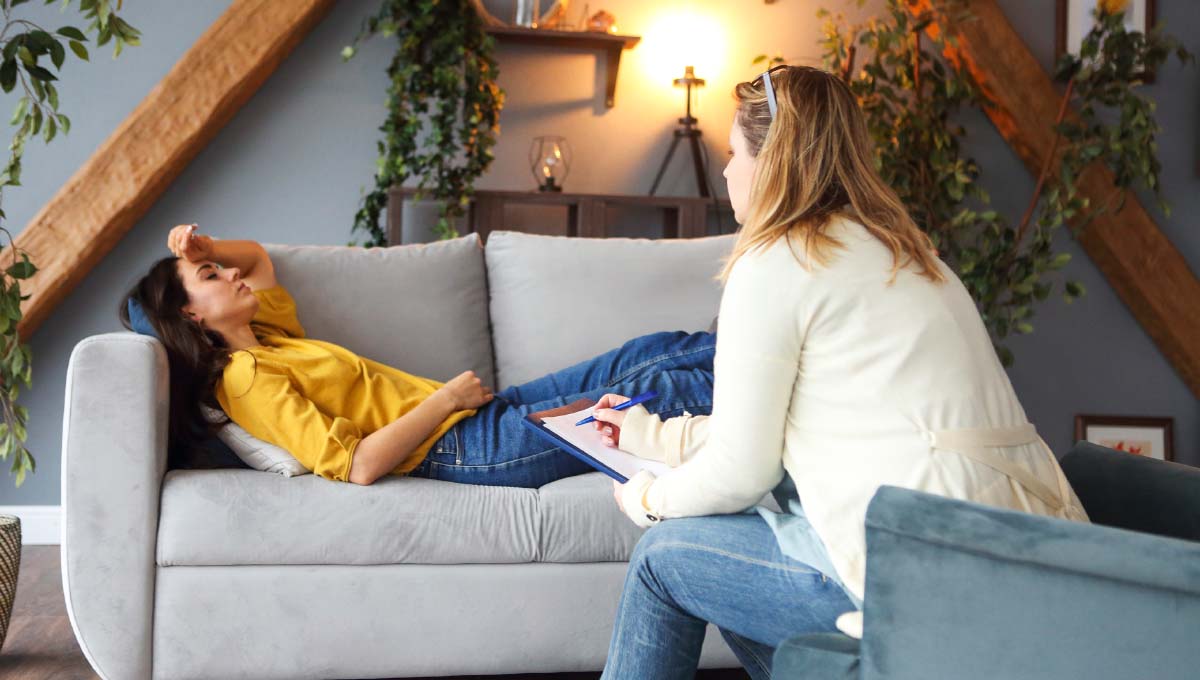When you’re anxious or tense, your hands tend to shake. Anxiety or stress doesn’t hurt brain function, but it does have physical effects. At some point, continuous stress may cause the shaking with anxiety. One of the most noticeable symptoms is hand tremors and anxiousness. When you notice a scenario of anxiety shaking, get expert treatment.
MAVA Behavioral Health offers specialized care for anxiety treatment and management. We’ll also discuss shaking anxiety, its causes, and management strategies. Continue reading this informative blog post to gain valuable information and perspectives.
What is Anxiety Shaking?
Trembling is one of the somatic symptoms that cause shaking with anxiety disorders. In this case, the symptom may come with other disorders, like social anxiety disorder or panic disorder. It may also come with post-traumatic stress disorder.
Some people might also develop this kind of symptom when they are nervous, even if they do not have a diagnosed anxiety disorder. For instance, it can manifest as tremors during public speaking at your workplace, a school play, or a gathering event.
What Causes Anxiety Shaking?
When you feel stressed, your body triggers shaking anxiety. It does this by entering fight-or-flight or freeze mode. As noted above, such times may see you having a faster heart rate and high blood pressure levels. Adrenaline, cortisol, and stress hormones enter your bloodstream. Your muscles squeeze as this happens. Then, they relax as the stressor goes away and you shake.
Sometimes, due to an imbalance of hormones, receiving any shocking news may tend to make the person cry and their hands shaking due to anxiety. So, shaking from anxiety lasts until the anxiety stops. This could take a few seconds to a couple of minutes.
Anxiety Shaking Symptoms
When a person is anxious, they may have a bodily response to their stress. This physical reaction might cause shaking with anxiety. A panic attack occasionally accompanies internal shaking anxiety, while other times the symptoms are milder.
Anxiety shaking can cause a variety of symptoms, including the following:
- Hand tremors
- Muscle tremors
- Heart aches
- Anxiety tremors at night
- Being short of breath
- Feeling dizzy
- Fatigue
Anxiety and Shaking
Stress response for your body is to fight, flee, or freeze. Stress hormones flood your body and make your heart beat faster, and your blood pressure and breathing rise. Your body is ready to deal with the stressor by perceiving shaking with anxiety as a sign to either stand one’s ground or run from the threat.
Your muscles receive signals from your brain to spring into action. It develops vibrations, contractions, or quivering. Panic disorder and anxiety resulting in the occurrence of attacks are the symptoms. But, they are not the same disease. Anxiety, which may present itself in severe form may cause cognitive manifestations. The general features of body shaking anxiety include the activation of hormones.
Additionally, it perceived stress, danger, and strong emotions. Organizing the thinking and behavior associated with a particular situation can lead to a panic attack. Although not in all cases; this will be due to anxiety.
Tips To Manage Shaking Anxiety
Mindfulness
A recent study found that mindfulness can help lower stress and anxiety symptoms. Headspace and Calm are popular apps for accessing mindfulness plans and tracking progress. The goal of mindfulness is to stay in the present situation and accept the thoughts that arise without judgment. This practice can help you control your emotions, such as anxiety, which can help you avoid anxiety-related symptoms.
Breathing Exercises
Squared or boxed breathing is a breath work technique that directs one’s breath. Benefit of mindfulness includes this kind of breathing practice. To begin, focus on your breathing and release all your air. Next, breathe in for four counts, hold your breath for four counts, release your breath for four counts, and repeat the process. Continue this pattern until you feel less nervous and more at peace.
Yoga
Over time, regular yoga practice can help individuals with anxiety unwind and react less stress to the things that make them anxious. You can start a yoga practice with paid and free applications or look for a nearby studio.
Change Your Temperature
When our sympathetic nervous system is active, we experience heat. “cooling down” is an excellent approach to “cool” our sympathetic response. A few examples are taking a cold shower, sipping a glass of cold water, splattering cold water on your face, or standing in front of a fan or air conditioner. These cooling techniques have the power to cut shaking.
Medication Treatment Option
Medication treatment options. Those include:
- Benzodiazepines are drugs that can help with movement and thought control. Brief relief of anxiety and attacks of panic medication treatment is suitable. Some of the medicines that fall under this class are alprazolam, chlordiazepoxide, and clonazepam. Current benzodiazepines come with the associated problems. These include as; tolerance, dependence, and addiction, albeit with comparative moderation.
- Strictly known as the SSRIs, or selective serotonin reuptake inhibitors. There is a possibility that this type of medication take long time. Such medications are used in cases of anxiety and depression. Some of these are escitalopram (Lexapro), fluoxetine (Prozac), and paroxetine (Paxil).
- Inhibitors of monoamine oxidase (MAOIs): MAO is an enzyme involved in the breakdown of various important amines in the brain. MAOIs are also prescribed for anxiety and panic disorder. Examples of such medications include tranylcypromine (Parnate) and isocarboxazid (Marplan).
How To Stop Shaking from Anxiety Immediately?
These are the few things to consider to relieve the anxiety.
4-7-8 breathing
This breathing method is known as pranayama or yoga breath control. He before referred to it as a “natural tranquilizer for the nervous system.” Sit in a space that is comfortable and distraction-free to practice. Press your tongue against the back of your teeth and exhale, letting your lungs fill up. Inhale for four counts via your nose. For seven seconds, hold your breath, and then let it out for eight.
Progressive Muscle Relaxation
Using this method, the person isolates each muscle group. He builds tension for approximately five seconds. After that, let it all simultaneously. They can more effectively relax each muscle and relieve stress by isolating each group.
Anxiety-Induced Shaking
Anxiety-induced shaking is the result of experiencing extreme anxiety, which makes a person tremble or shake. This reaction stems from activating the “fight or flight” response, which sets off an adrenaline rush that causes the shaking. Thus, shaking with anxiety is not a sign of a malfunction. It is your body’s instinctive reaction to recognizing a threat and preparing to defend itself.
Important Note:
All the details provided in this article aim for informational and educational purposes. Please don’t consider it medical advice or a substitute for a psychiatric evaluation. For professional guidance and treatment, consult with our licensed healthcare professionals at MAVA Behavioral Health.
End Note
More often, anxiety turns into a life-consuming disorder when the signs affect the quality of your day-to-day life. Anxiety makes a person shake, race their heartbeat, and sweat, and this makes it hard for them to be close to a stimulus. Yet, there are easy methods that one can follow to assist in the reduction of anxiety, hence symbolizing the shaking. There are many aneurological symptoms, such as shaking and other manifestations of anxiety. Techniques such as deep breathing and mindfulness, for instance, are useful in managing anxiety. For quick relief from shaking anxiety, you may opt for the services of MAVA Behavioral Health.









